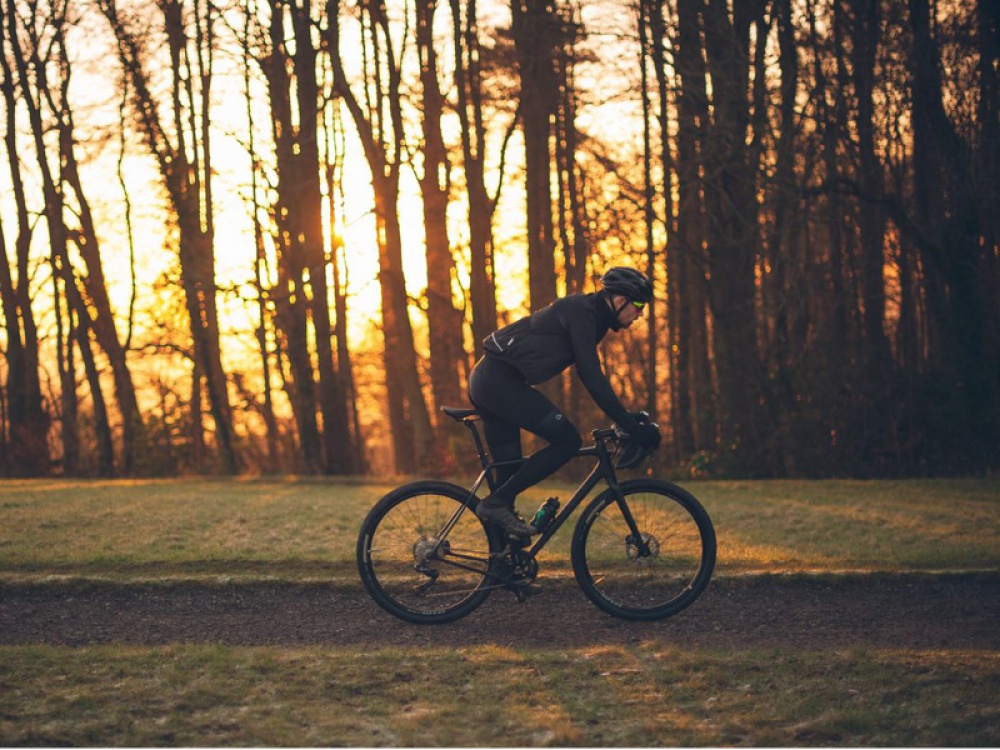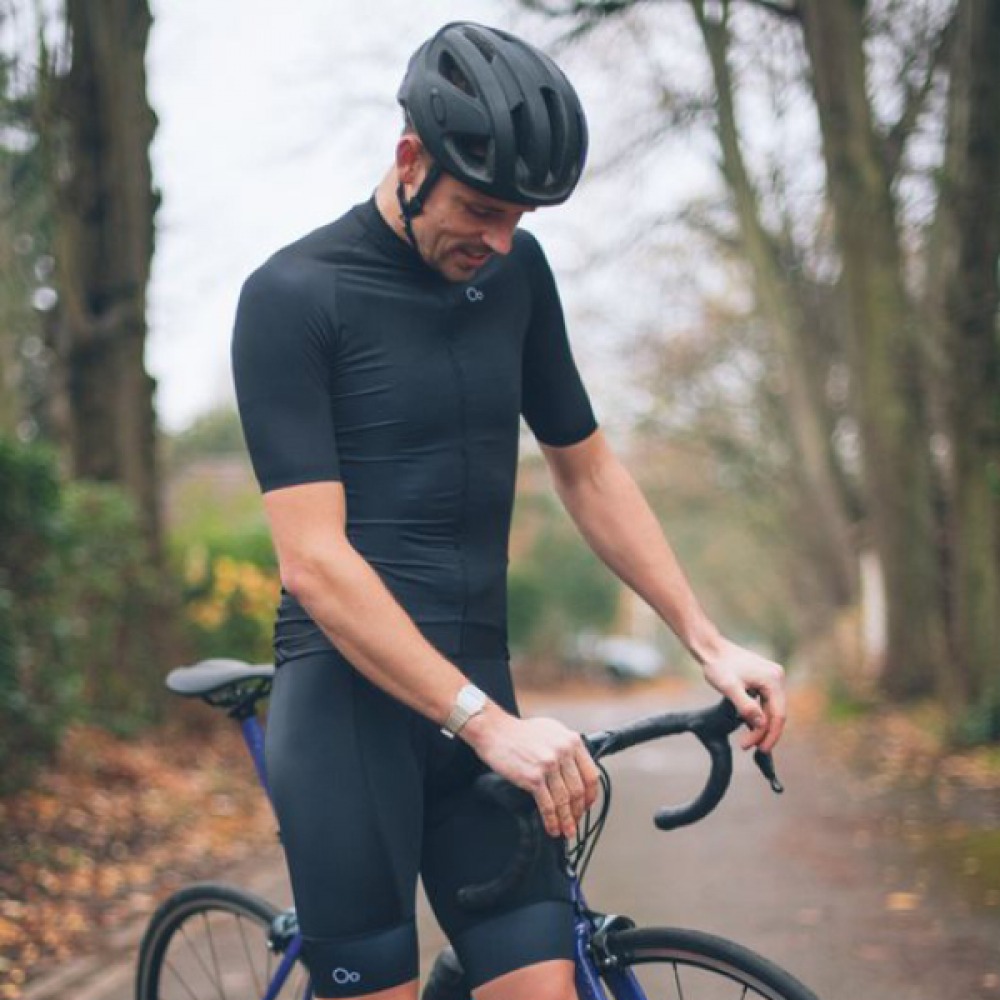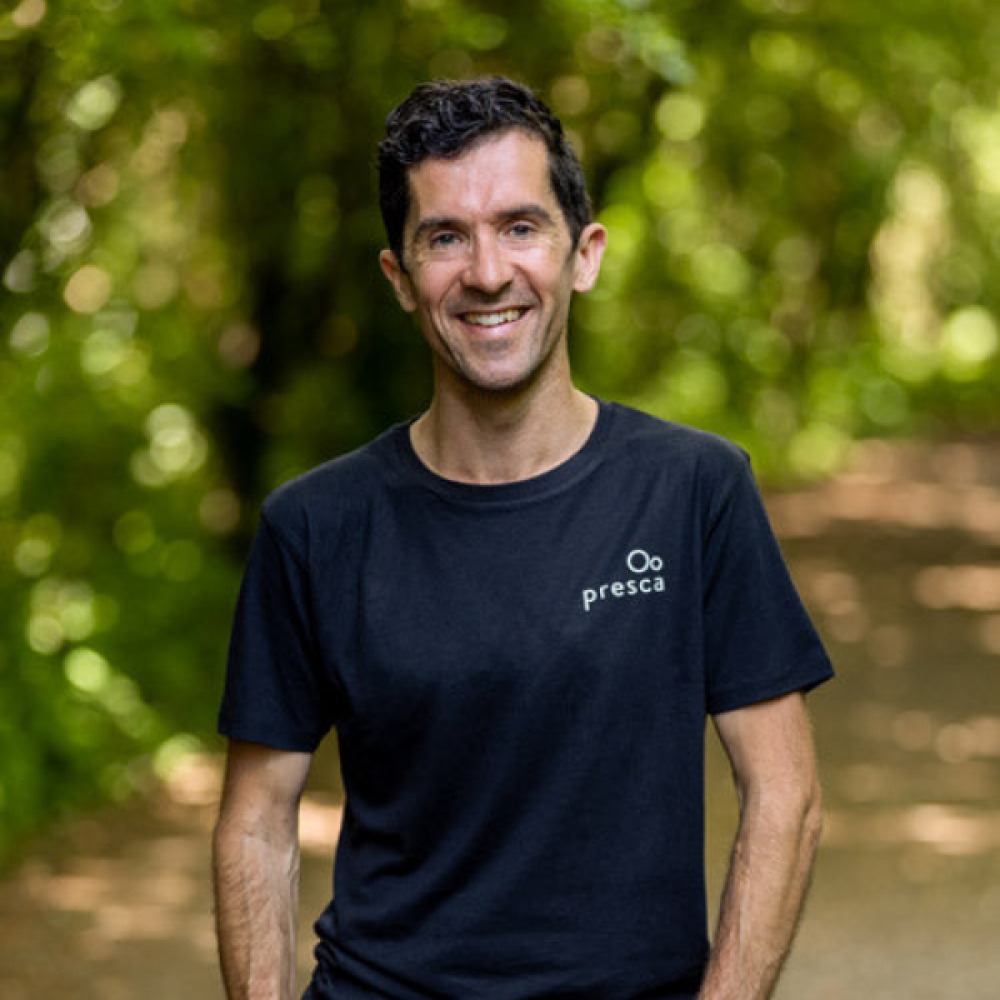Meet Presca, the World’s First Climate Positive Sportswear Company

Presca not only puts sustainability in the spotlight, but also seeks to revolutionise the way we shop for clothes

Making and growing new fibres for clothes uses a huge amount of fossil fuel, and around eight to 10 percent of total greenhouse gas emissions come from the fashion industry alone. However at Presca, which was started in Middlesbrough, the aim is to be part of the solution rather than adding to the worldwide problem.
In 2020, Presca launched their first fully-circular garments, following their design philosophy of only using recycled fabrics and fibres. They ‘design-out’ wastage, they manufacture every garment to last, and all their clothing and packaging is recyclable and biodegradable. ‘We’ve gone through quite a process to get to this stage,’ say Rob Webbon, CEO and head of climate positivity at Presca. ‘When we first started we were just making clothing from recycled materials, so recycled plastic bottles, recycled fishing nets and carpets. That was a brilliant starting point in terms of reducing our resource usage and use of water and energy emissions – but it was never where we wanted to get to long term,’ he adds.
Over the last few years people are starting to notice the impact the fast-fashion industry is having on the environment and move towards sustainable changes, which in turn is helping Presca’s cause. ‘If you go to any textile fair or fabric mill now, there will be racks and racks of fabrics with recycled fibres which is brilliant, and the industry is really catching up. However, when we first started Presca, the fabric suppliers were barely even talking about sustainability, and they may have had two or three fabrics on a hanger at the back that contained recycled content, but there wasn’t much in terms of material available. This meant that we had to buy our yarns and work with a fabric mill to knit them into fabrics for us,’ Rob explains.
‘It doesn’t matter if we use the most sustainable fibres in the world, as a society, if we continue making as many clothes as we are making now, the impact will be huge’

With a background in sustainability consulting, and a real interest in sport, Rob was able to use his knowledge and expertise to create a sustainable sportswear brand which he believed could do better. ‘I trained in environmental science and worked in that area for 15 years for governments in projects such as renewable energy and energy efficiency. At the same time I was getting very into sport, particularly cycling and endurance running, and started looking at the clothing on the market and quickly recognised that performance gear was made from unsustainable fabrics – there was very little transparency around the ethics of the manufacturing. I felt there was a big gap in the market and that I could do better,’ he says.
The performance element of Presca’s clothing is key, because although they are focused on sustainability, they also need their garments to be effective and proficient when it comes to training and endurance sports. ‘For the most part, consumers still aren’t looking for sustainability as their first point of action, and instead they want the performance, the aesthetic and the cool brand,’ says Rob.
At the moment, the fast-fashion industry is still creating more than 92 million tonnes of waste every year and although Rob has noticed a change with fabric mills and suppliers creating recyclable materials, he admits there is a long way to go. ‘First and foremost, I think there are too many things being made. It doesn’t matter if we use the most sustainable fibres in the world, as a society, if we continue making as many clothes as we are making now, the impact will be huge. I know that might sound odd coming from a clothing brand, but we need to work on how to get people to buy less and maybe flip the model away from creating huge volumes at the cheapest prices, and move towards investing in higher quality items which last a lot longer, and also taking more care of them as well,’ he says.
Presca have built a community of consumers who not only get a high-performing garment which is made sustainably, but are also contributing to the fight for change. ‘For every garment we sell we plant a tree and we also plant a tree for every five hours of exercise someone in our Strava club completes,’ Rob explains. In the long term the team at Presca want to push forward with their climate positive sportswear and create clothing which captures carbon as the user wears it. ‘I generally want our clothing to be locking CO2 in the manufacturing, so when you wear a Presca T-shirt I want the garment to absorb more carbon from the atmosphere than it puts into the air to make.’
prescasportswear.com







